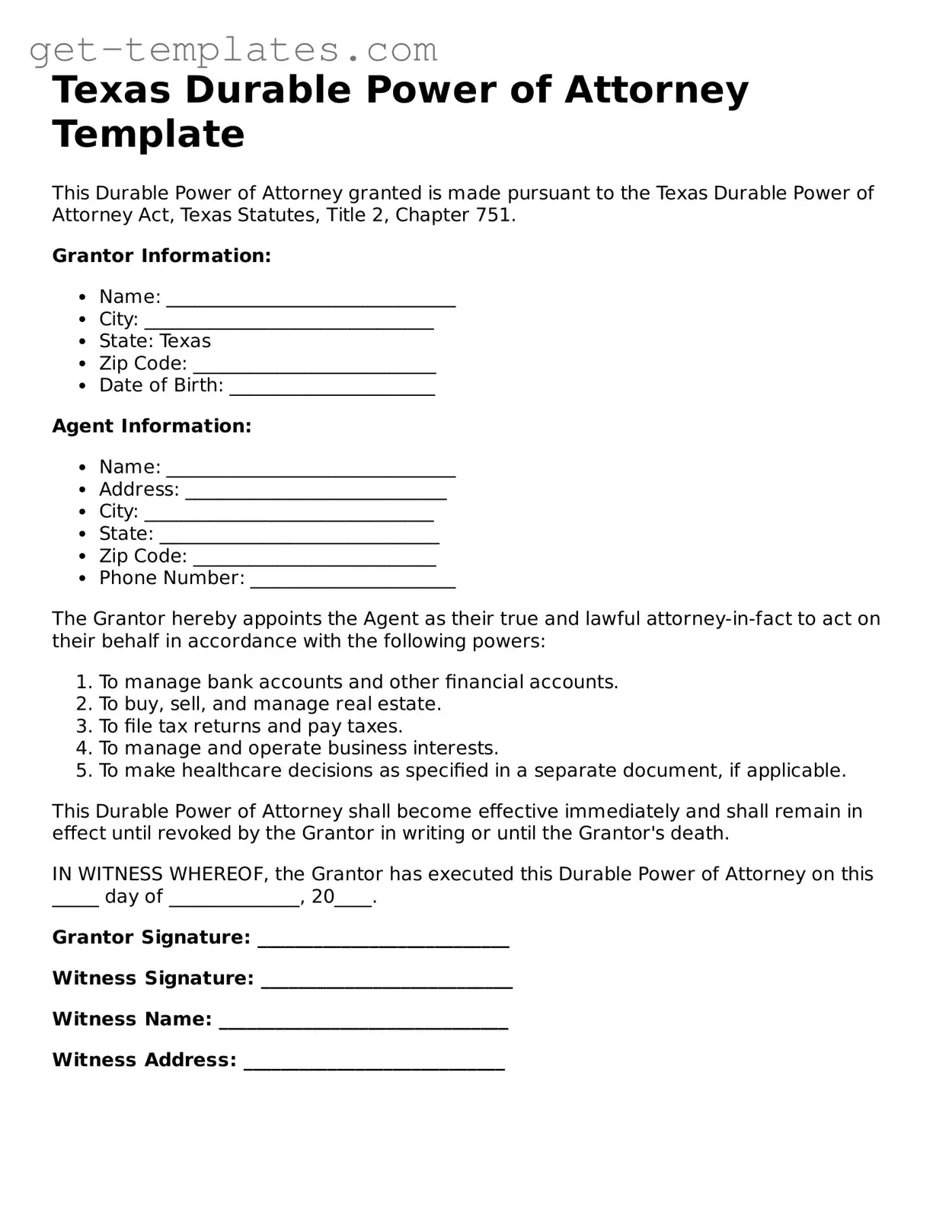Attorney-Approved Durable Power of Attorney Document for Texas
A Texas Durable Power of Attorney is a legal document that allows an individual, known as the principal, to designate another person, referred to as the agent, to make decisions on their behalf in the event they become incapacitated. This form remains effective even if the principal is unable to manage their own affairs, ensuring that their financial and healthcare decisions are handled according to their wishes. Understanding the nuances of this document is essential for anyone considering its use in Texas.
Get Document Online

Attorney-Approved Durable Power of Attorney Document for Texas
Get Document Online
You’re halfway through — finish the form
Finish Durable Power of Attorney online — edit, save, download made easy.
Get Document Online
or
⇓ PDF Form
